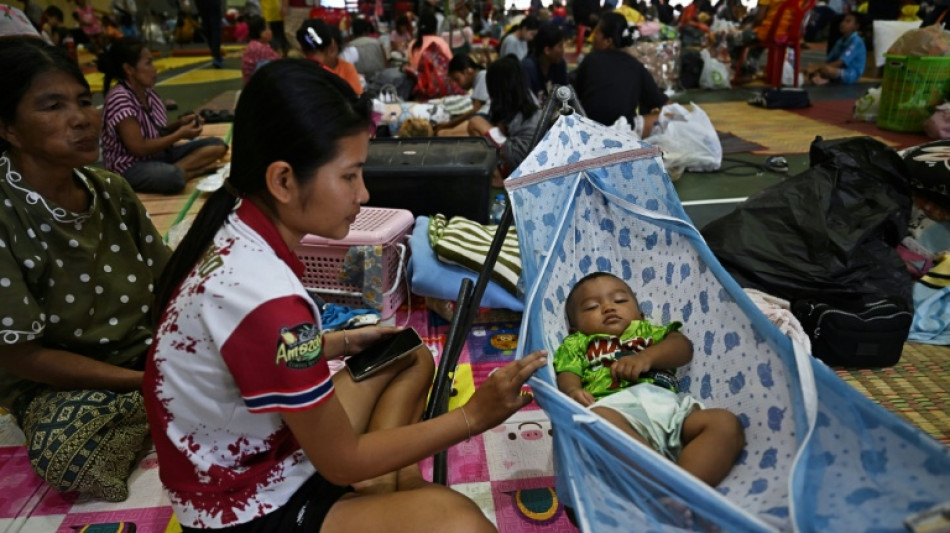
RBGPF
0.0000

Sitting on plastic mats in a sports hall, desperate evacuees told AFP of fleeing in terror from thunderous artillery bombardments as Thailand and Cambodia clash.
More than 100,000 people have been evacuated from their homes in four Thai border provinces amid the worst fighting between the two neighbours in over a decade.
As artillery fire thundered on Thursday, thousands of people in northeastern Surin province fled their homes and sought refuge in makeshift shelters set up in the town centre.
In the sports hall of Surindra Rajabhat University, nearly 3,000 people were packed tight on rows of plastic mats, scattered with colourful blankets and hastily packed personal belongings.
"I'm worried about our home, our animals, and the crops we've worked so hard on," Thidarat Homhuan, 37, told AFP.
She fled with nine other family members, including her 87-year-old grandmother who had just been discharged from hospital.
"That concern is still there. But being here does feel safer, since we're further from the danger zone now. At least we're safe," she said.
Thidarat was babysitting for a teacher at a local school when she heard what she described as "something like machine gun fire", followed by the heavy thud of artillery.
"It was chaos. The kids were terrified. I rushed to the school's bunker," she said.
Inside the shelter, evacuees slept side by side beneath the gym's high roof, surrounded by the hum of electric fans and quiet murmurs of uncertainty.
The elderly lay bundled in blankets, babies dozed in cradles while youngsters played quietly. Pet cats rested in mesh pop-up crates near the public restroom.
- 'Worse than 2011' -
It is the first time the university has been fully activated as a shelter site, said Chai Samoraphum, director of the university's president's office.
Classes were abruptly cancelled, and within an hour, the campus was converted into a functioning evacuation centre.
Thousands of evacuees from four districts next to the border were placed into six locations across the campus.
"Most of them left in a hurry. Some have chronic health conditions but didn't bring their medications, others only managed to grab a few belongings," Chai told AFP.
With help from the provincial hospital, the centre is also caring for people with chronic illnesses and providing mental health services for those struggling with trauma, Chai said.
Border clashes between the two nations have left at least 14 people dead in Thailand, officials said, including one soldier and civilians caught in a rocket strike near a petrol station in Sisaket province.
Thidarat said the current conflict feels more severe than the last major clashes in 2011.
"It wasn't this serious back then. People's houses weren't damaged like this. There were no announcements about civilians being injured," Thidarat said.
"This year is much worse -- the number of deaths and injuries is really devastating."
As clashes go on near the border, there is no clear timeline for when people can return home.
For now, the shelter provides a sense of safety -- and a place to wait for a sign that it's safe to "go back to normal life," Thidarat said.
She already had a message for those in power: "I want the government to take decisive action -- don't wait until lives are lost."
"Civilians look up to (the government) for protection, and we rely on them deeply," she said.
V.Sedlak--TPP